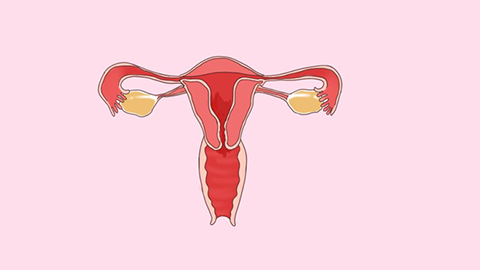What could be the reason for having vaginal bleeding for several days?
Vaginal bleeding lasting for several days may be caused by ovulation bleeding, menstrual disorders, dysfunctional uterine bleeding, cervicitis, endometritis, and other conditions. Symptoms can be improved through lifestyle adjustments, observation and care, or medication. If the bleeding increases in volume or is accompanied by abdominal pain or fever, prompt medical attention is necessary.
1. Ovulation bleeding: Hormonal fluctuations during ovulation can cause slight shedding of the endometrium, resulting in light bleeding that typically lasts 3–5 days and may be accompanied by mild abdominal discomfort. It is recommended to get adequate rest, avoid strenuous exercise, maintain good external genital hygiene, and no specific treatment is usually required as symptoms resolve spontaneously.
2. Menstrual disorders: High stress levels, irregular sleep patterns, and other factors affecting the endocrine system can lead to prolonged menstrual cycles and prolonged, irregular vaginal bleeding with variable blood loss. It is advised to maintain regular作息 (daily routines), reduce late-night activities, stay emotionally balanced, eat a well-balanced diet, and avoid spicy or irritating foods.

3. Dysfunctional uterine bleeding: Endocrine imbalances lead to abnormal uterine bleeding characterized by prolonged duration and irregular blood loss, often accompanied by fatigue and dizziness. Treatment under a doctor's guidance may include medications such as estradiol valerate tablets, dydrogesterone tablets, or Gongxinning capsules to alleviate symptoms.
4. Cervicitis: Inflammation of the cervix caused by bacterial or viral infections leads to cervical congestion and erosion, resulting in contact bleeding or irregular bleeding, often accompanied by increased vaginal discharge. Patients may use medications such as Baofukang suppositories, Kangongyan tablets, or cefixime dispersible tablets under medical supervision to relieve symptoms.
5. Endometritis: Infection within the uterine cavity causes inflammation, leading to endometrial congestion and edema, which results in prolonged irregular bleeding, lower abdominal heaviness, and foul-smelling vaginal discharge. Under a doctor’s direction, patients may take metronidazole tablets, cefuroxime axetil tablets, or Gynecological Qianjin tablets to improve symptoms.
Maintain external genital hygiene, frequently change cotton underwear, avoid sexual intercourse during bleeding episodes, follow a light and nutritious diet, avoid overexertion and cold exposure, and closely monitor bleeding patterns to support recovery.




